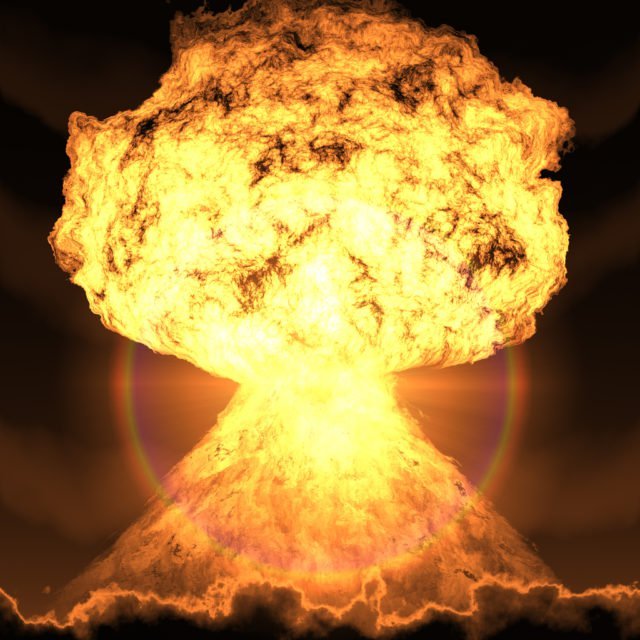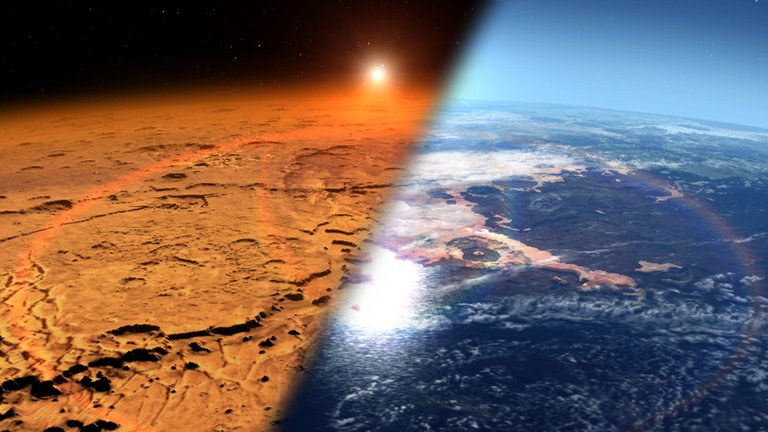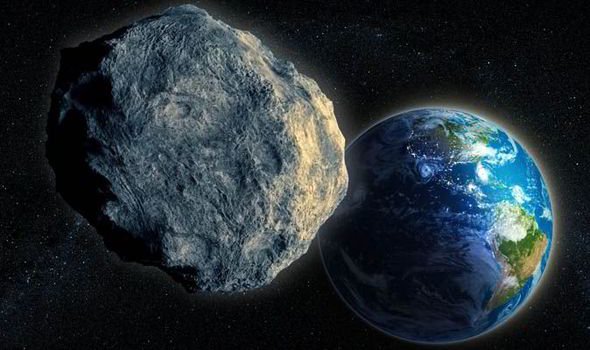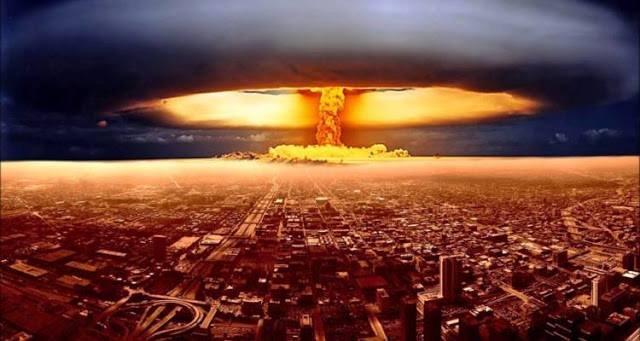
A scientist wants to have found evidence of a nuclear disaster on Mars. Now the first shocking evidence for the demise of the Martian civilization was presented.
Mars was once earth-like in climate, with an ocean and rivers. For a long time he was said to have been home to both plants and animals, including a humanoid civilization.
For some inexplicable reason, however, life ended on Mars. According to the latest research, Mars is said to have been devastated by a massive thermonuclear explosion which destroyed the planet's biosphere.

A physicist proclaims to have found the definitive evidence
Plasma physicist John E. Brandenburg is interested in meteorites and has written several articles about them. During his research, he became acquainted with nuclear isotopes, which are very important in detecting the origin of meteorites.
In particular, oxygen and xenon are important in this regard, to find out if the respective meteorite comes from Mars. So he became interested in the abundance of xenon-129 on Mars.
Brandenburg states that xenon-129 is the decay product of iodine-129, which with its half-life of 15.7 million years is the longest-lived iodine isotope. A feature of the Martian atmosphere is the predominance of xenon-129 and argon-40 over other isotopes. This allows the identification of Mars as the mother body of the so-called SNC meteorites.
In addition, it also meant something else, something that made a physicist in Sandia react with horror. Brandenburg knew exactly why. The physicist discovered that the xenon-129 excess also existed on another planet, the Earth. This seems to have occurred after the 50s.

The earth escaped a huge catastrophe - Mars did not ...
Initially, Brandenburg still believed that the xenon-129 was due to the activity of nuclear reactors. Later, however, he discovered that nuclear reactors produced very little xenon-129. Thus it was clear to Brandenburg that the appearance of xenon-129 was not caused by the usual activity of nuclear reactors, but by the uranium fission in hydrogen bombs!
The Earth's atmosphere has remained intact despite the catastrophes. Therefore, according to Brandenburg, their isotope distribution is considered normal. Various processes can "eat away" the atmosphere of the planet over time, especially if it does not have a strong magnetic field, as is the case with Mars.
According to Brandenburg, a process took place on Mars, which has messed up the krypton isotopes in a previously unknown way. Both xenon and krypton are abundant in relation to argon-36, an initial isotope. So the value on Mars is almost twice as high. From this, Brandenburg concludes that a large nuclear fission must have occurred on Mars.
But the plasma physicist wonders what kind of nuclear fission might have caused this disruption of both the xenon and krypton isotopes. One thing is certain: The xenon "fingerprint" was the result of a sudden tremendous release of energy.

For Brandenburg, only a major nuclear fission event seems to be in question. This had to be driven by the use of fusion-neutrons, which produced the xenon-129 excess in the way nuclear weapons on Earth do.
Brandenburg concludes that the unique extreme xenon-129 excess in the atmosphere of Mars can not be reconciled with any known processes in nature, but rather with the extreme xenon-129 excess in the earth's atmosphere that is based on hydrogen Bomb tests.
The krypton values are also consistent with this interpretation. According to Brandenburg, more data was found. Some of the Martian meteorites would have an extreme excess of krypton-80. This can only be explained by the fact that the stone was exposed to strong neutron irradiation before it was ejected into space.

The scientist also recognizes that the surface of Mars has far more uranium, thorium and radioactive potassium than the Martian meteorites. These were originally subterranean rocks and thus protected from cosmic rays before being ejected into space. Which in turn means that Mars was covered by a thin surface layer of radioactive material.
All this means that Mars was the site of a massive and violent nuclear explosion that produced intense local rainfall of neutrons and scattered radioactive debris across the planet. This is also confirmed by radiation maps from Mars, which are to show two centers of radioactivity. One near Cydonia and one near the Utopia region.

According to Brandenburg, the radiations suggest a possible explosion 200 million years ago. In addition, this age frighteningly coincides with the window of great animal mortality in the Permian age on Earth. This would also explain the almost complete extinction of all living things and provide a reason why surviving species such as the cockroaches, have an immunity to radiation.
Furthermore, the explosion must have been an air detonation, as no craters can be seen in the center of the radioactive pattern. Brandenburg also calculates an energy release of one billion megatons of dynamite. Such energy would bring about a planet-wide catastrophe that would wipe out almost all life on Mars.
The physicist believes that there was intelligent life on Mars and somebody from space wanted to destroy it and ultimately did.
He is also convinced that life on Mars has developed, similar like it did on Earth. At some point, a humanoid culture emerged that produced similar artifacts as on Earth. Likewise, it was obvious that this culture was as familiar with tragedies on a massive scale.
What do you think? 200 million years ago, was there a sophisticated culture that sank with all the life on its planet due to a nuclear disaster?